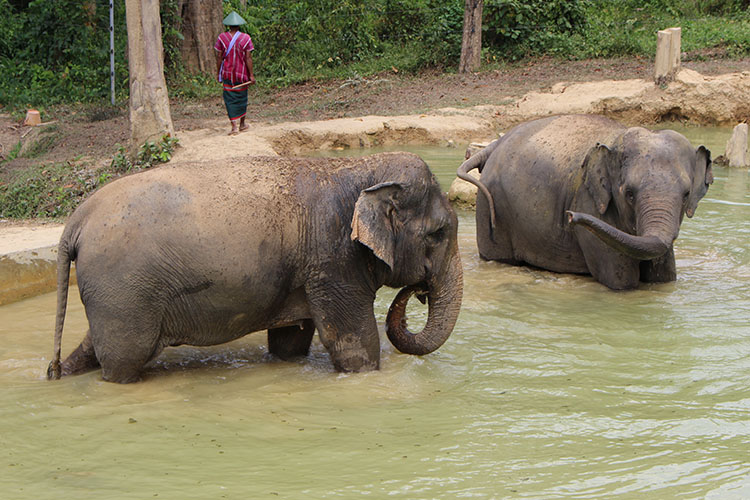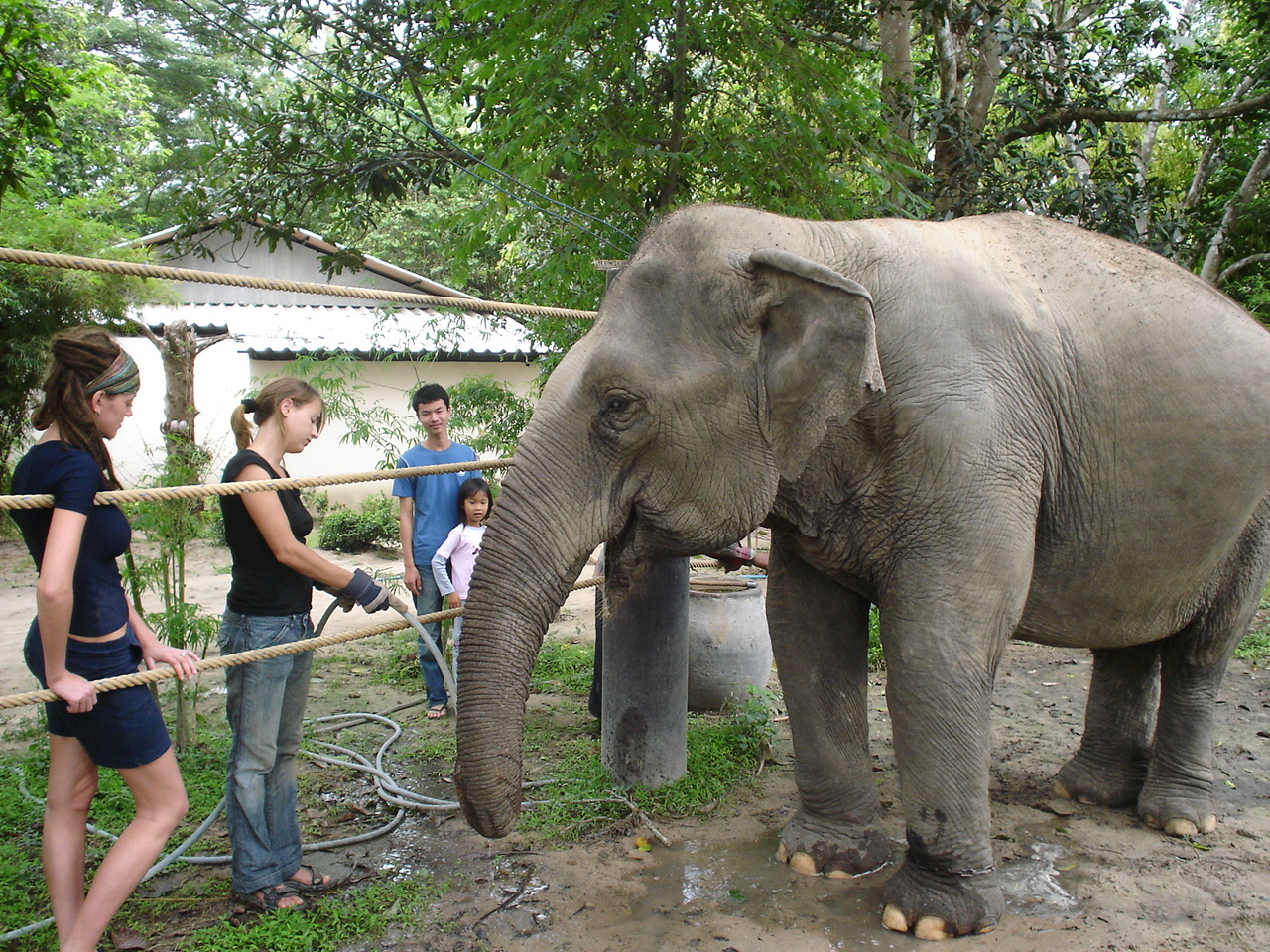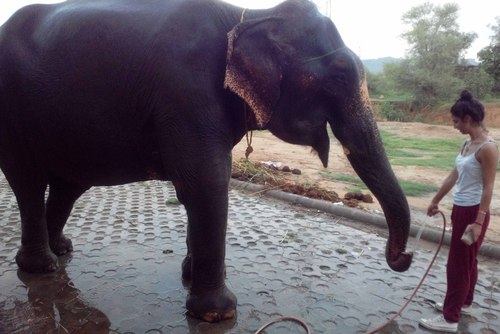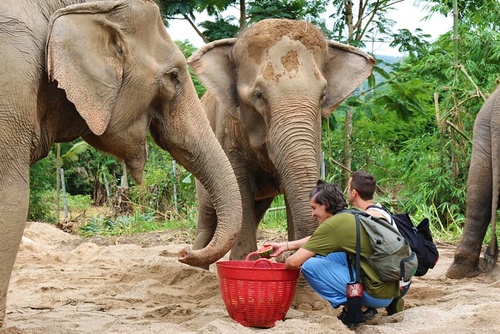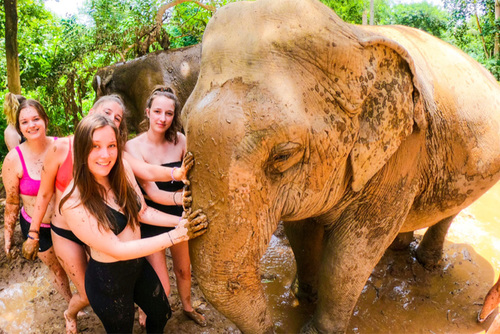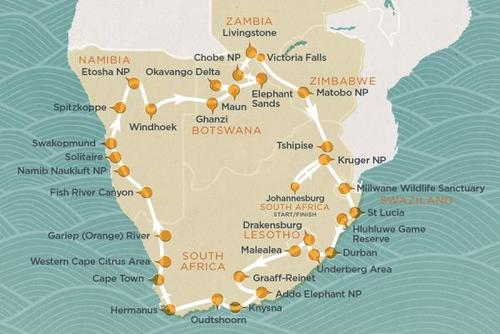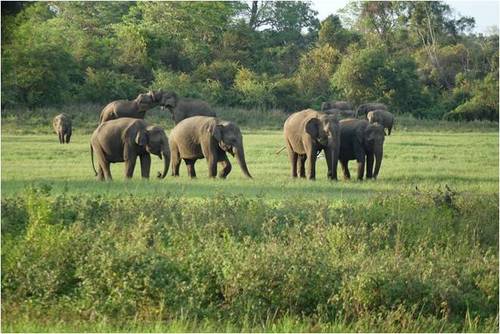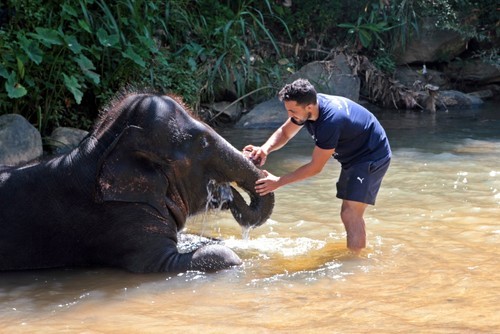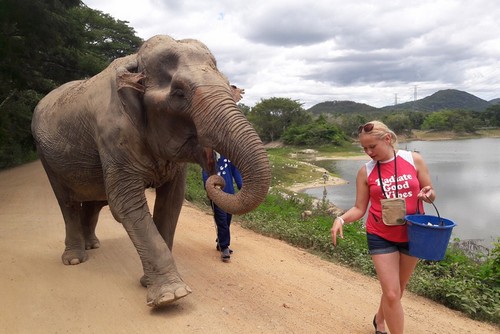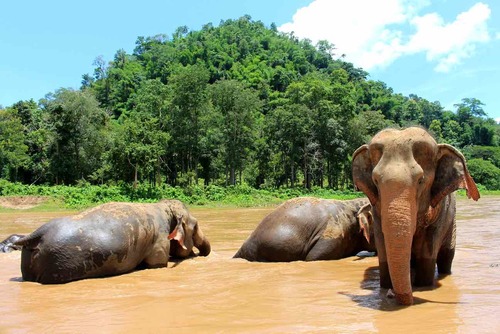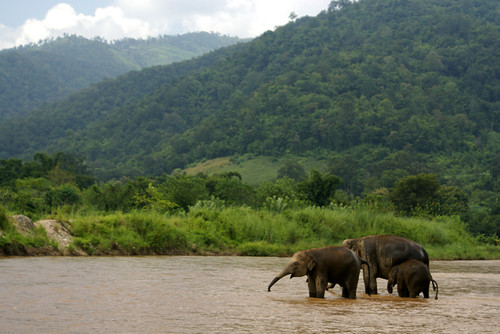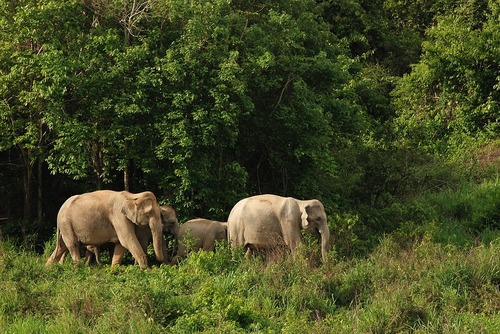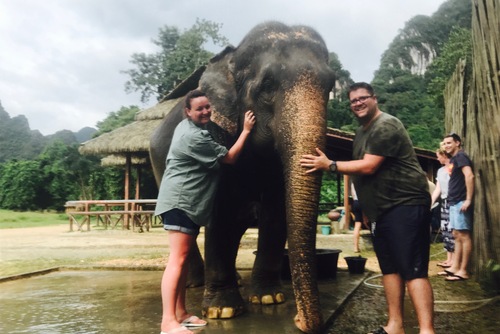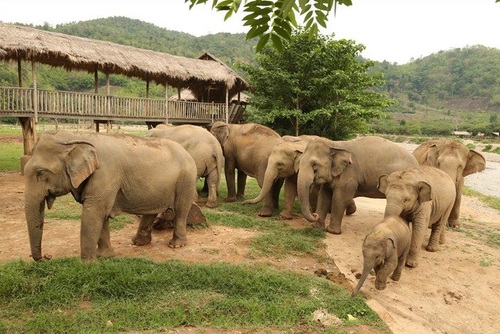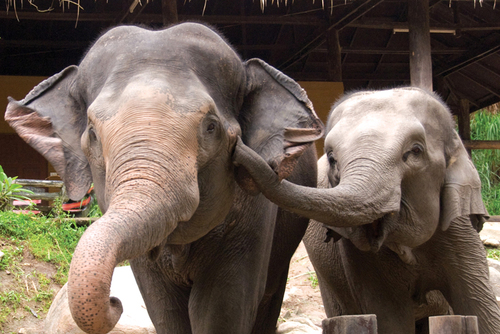But for many, a visit would not be complete without meeting the endangered Asian elephant, with lots of tourists paying for the opportunity to ride on the back of one - an experience that’s become almost synonymous with Asia.
Despite doing so out of love for these animals, the sad truth behind activities like elephant treks or circus shows is a cruel industry that’s funded by tourism. What many visitors aren’t aware of when opting for these activities are the highly unethical methods that have likely been used to train these gentle giants, or the mistreatment they’re still subject to on a daily basis.
Often taken captive from the wild, young elephants are separated from their mothers at an early age and put through a process called ‘the crush’. This involves them being locked in a cage and beaten until their spirit is literally broken, and they become submissive enough to be trained to do the things we perceive as harmless entertainment.
Awareness of this may be on the rise, but their mistreatment won’t end if there’s still a demand for unnatural elephant experiences which involve these cruel practices. This doesn’t mean you can’t interact with elephants at all in Asia.
An increasing number of sanctuaries and nature parks in Thailand and other countries are now open for those who are concerned about animal welfare, where you’re able to get up close to elephants in a much more meaningful way - why ride on the back of one when you could spend time feeding, washing and caring for one instead?
There’s almost no avoiding street vendors selling all types of elephant experiences in tourist areas, but it’s always best to do your research and book a reputable establishment beforehand, so you know you’re supporting the real deal. Some also offer the change to volunteer with elephants which can be an amazing experience.
Here are just a few elephant sanctuaries which can be found across Asia:
1. Elephant Freedom Project, Sri Lanka
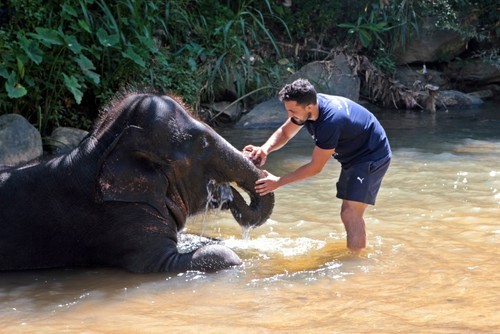
Experience a special elephant encounter at the Elephant Freedom Project which is suitable for young and old, families, couples and single travelers. This is your chance to get a memorable impression of a day in the life of a lucky Sri Lankan captive elephant who is not being used for working nor riding. Visits and volunteering programs are available all year round.
- Contact the Elephant Freedom Project today.
2. Kindred Spirit Elephant Sanctuary, Thailand
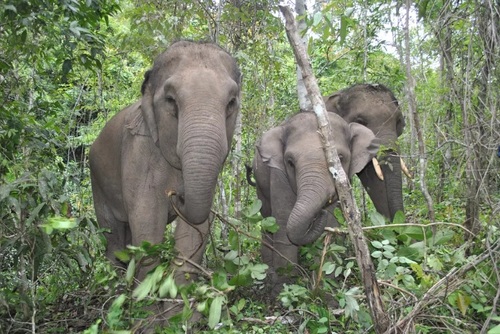
The Kindred Spirit Elephant Sanctuary is a Non-Profit Foundation who are dedicated to giving their elephants the best life possible with the help of visitors and volunteers.
Their aim is to bring elephants home to the forest by working with the local communities to not only provide a haven for our elephants, but also provide an alternative livelihood for their mahouts and owners.
Their elephants have been taken from a life of inadequate health care, poor diet, exhaustion and entertaining tourists, they were unable to just be elephants. They brought these wonderful creatures back to their natural environment where they are living in semi-wild conditions, free to roam as much as possible and live their lives how they choose – interacting and foraging. They plan to bring elephants of all ages and sizes home to the forest.
Kindred Spirit offer 2/3 day package visits, a volunteer program, an elephant research internship and also a hill-tribe teaching placement.
- Contact Kindred Spirit Elephant Sanctuary today.
3. Elephant Nature Park, Thailand
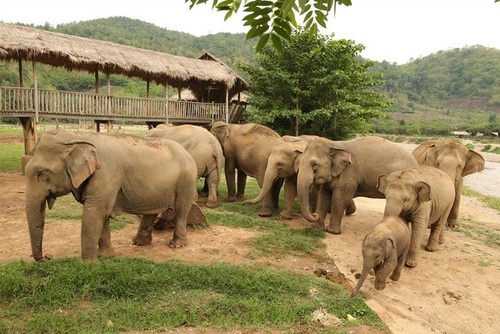
An award-winning project located in north Thailand, The Elephant Nature Park (also known as ENP) is a rescue centre for dozens of elephants from all over the country.
- Contact ENP today.
4. Wildlife Friends Foundation (WFFT), Thailand
Wildlife Friends Foundation (WFFT) is a wildlife foundation located in Petchaburi, Thailand which rescues and cares for sick and abandoned animals, they aim to help wildlife, educate people, prevent hunting and promote conservation. You have the option to visit the centre or spend time volunteering where you can work direct with elephants, bears, gibbons, monkeys and other animals.
- Contact WFFT today.
5. Boon Lott's Elephant Sanctuary (BLES), Thailand
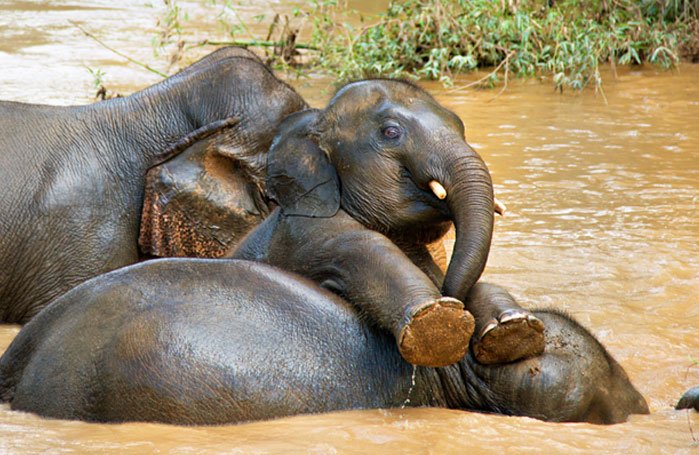
BLES is passionately devoted to creating a safe and natural home for Thai elephants. We care for rescued and retired elephants, allowing them to interact freely within 500 acres of forested land. There are no performances — just elephants. As a non-profit organization, BLES is entirely dependent on funds generated by visitors to the Sanctuary and on donations from individuals, foundations, and other agencies. One hundred percent of all monies received are reinvested in helping our elephants and other BLES animals.
- For more information or to arrange a visit contact Boon Lotts Elephant Sanctuary today,
6. ElephantsWorld, Kanchanaburi, Thailand
Founded in 2008, ElephantsWorld located around 180km from Bangkok looks after rescued, abused, old and injured elephants, and believes we should work for them, and not them for us. ElephantsWorld work for elephants, instead of them for people! They can enjoy themselves in their own natural environment until their last breath. As a visitor you get to enjoy very memorable experience with these beautiful animals. You can help by visiting and volunteering to take care of elephants by feeding them, gathering food and bathing them.
- Contact ElephantWorld today.
6. Elephant Hills, Khao Sok, Thailand
Combining an elephant experience with a night of ‘glamping’ in the rainforest, Elephant Hills is located in Khao Sok National Park and has been awarded the Green Excellence Award for Animal Welfare two years in a row. Elephant Hills is also Thailand’s first Luxury Tented Jungle Camp, combining the camp idea of African national parks with the Thai tropical forest environment. We offer 2-4 day nature soft adventure tours in and around the stunningly beautiful Khao Sok area.
- Contact Elephant Hills and arrange a visit today.
Things to Consider Before Booking any Elephant Related Tourist Activity
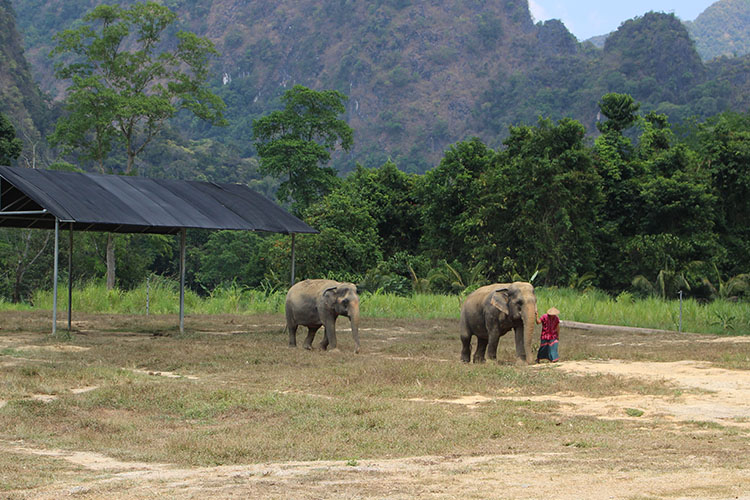
Here are some things you should look out for to make sure the sanctuary you’ve chosen is practicing responsible tourism.
- Elephants are free to move and roam in large outdoor enclosures during the day
- They’re are not chained or tethered
- Access to fresh water throughout the day, and nutritious food is given
- Elephants are kept in groups, and able to interact socially with each other
- Riding is not allowed
- Contact with the general public is limited
Related Pages

